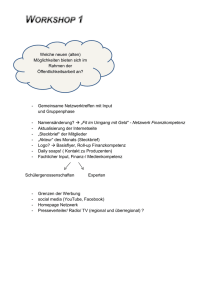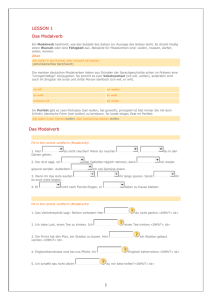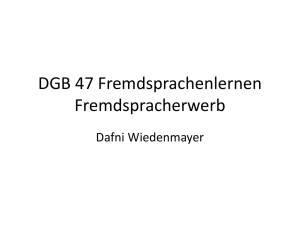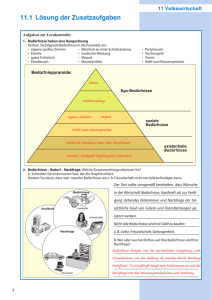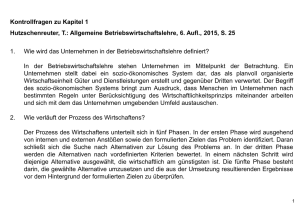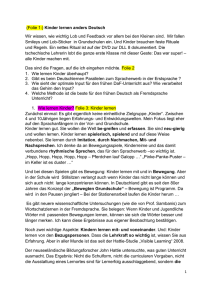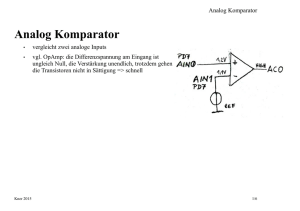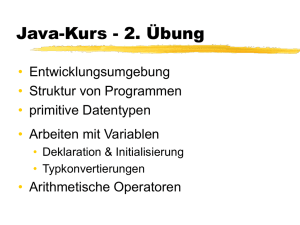Programmier-Befehle
Werbung
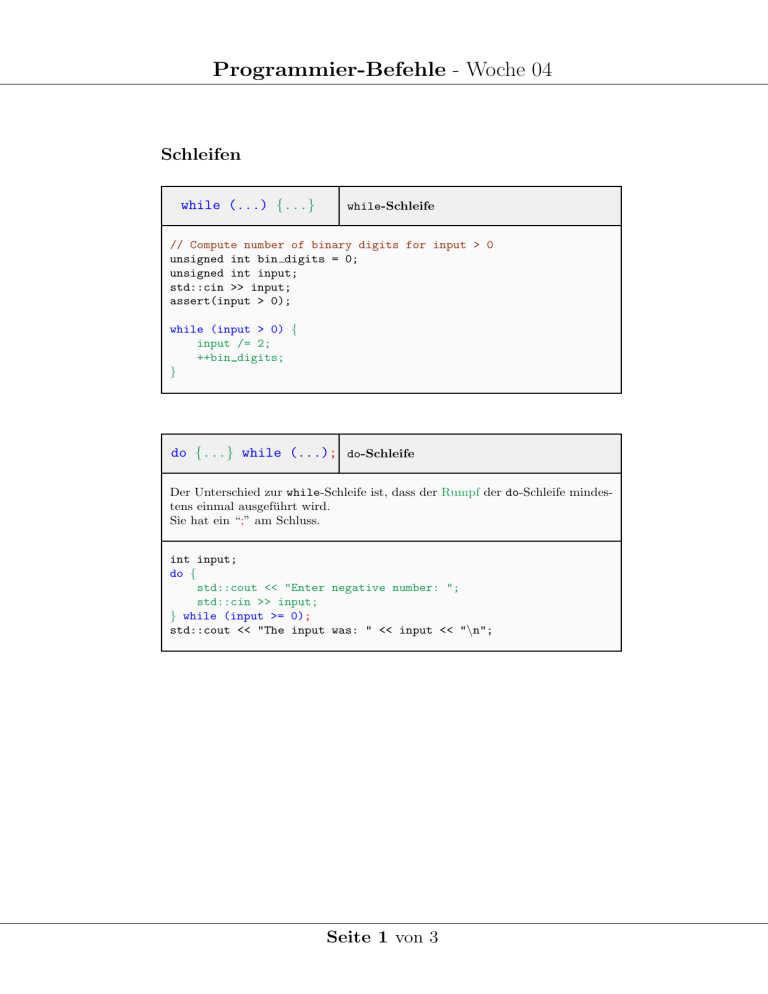
Programmier-Befehle - Woche 04
Schleifen
while (...) {...}
while-Schleife
// Compute number of binary digits for input > 0
unsigned int bin digits = 0;
unsigned int input;
std::cin >> input;
assert(input > 0);
while (input > 0) {
input /= 2;
++bin digits;
}
do {...} while (...); do-Schleife
Der Unterschied zur while-Schleife ist, dass der Rumpf der do-Schleife mindestens einmal ausgeführt wird.
Sie hat ein “;” am Schluss.
int input;
do {
std::cout << "Enter negative number: ";
std::cin >> input;
} while (input >= 0);
std::cout << "The input was: " << input << "\n";
Seite 1 von 3
Programmier-Befehle - Woche 04
break
Schleife abbrechen
int input, n;
std::cin >> input >> n;
// Divide input by n numbers [Note: integer-division].
// Stop if 0 is entered.
for (int i = 1; i <= n; ++i) {
int k;
std::cin >> k;
if (k == 0)
break; // go straight to Output
input /= k;
}
// Output
std::cout << input << " remains\n";
continue
zur nächsten Iteration springen
Bei der for-Schleife wird das Inkrement noch ausgeführt.
int input, n;
std::cin >> input >> n;
// Divide input by n numbers [Note: integer-division].
// Skip entered 0’s.
for (int i = 1; i <= n; ++i) {
int k;
std::cin >> k;
if (k == 0)
continue; // go straight to ++i
input /= k;
}
// Output
std::cout << input << " remains\n";
Seite 2 von 3
Programmier-Befehle - Woche 04
Datentypen
float
Datentyp für Zahlen mit Nachkommastellen (32 Bit)
Literal: ohne Exponent: 288.18f, mit Exponent: 0.28818e3f
Der Modulo-Operator % existiert für float nicht.
float a = 288.18f;
float b = 0.28818e3f / a; // computations work as expected
float c;
std::cin >> c; // float user input
double
grösserer Datentyp für Zahlen mit Nachkommastellen (64 Bit)
Literal: ohne Exponent: 288.18, mit Exponent: 0.28818e3
Unterschied zu float: double ist genauer (grössere Präzision und
grösseres Exponenten-Spektrum), braucht aber mehr Platz im Speicher
(float: 32 Bit, double: 64 Bit).
Der Modulo-Operator % existiert für double nicht.
double a = 288.18;
double b = 0.28818e3 / a; // computations work as expected
double c;
std::cin >> c; // double user input
Seite 3 von 3
